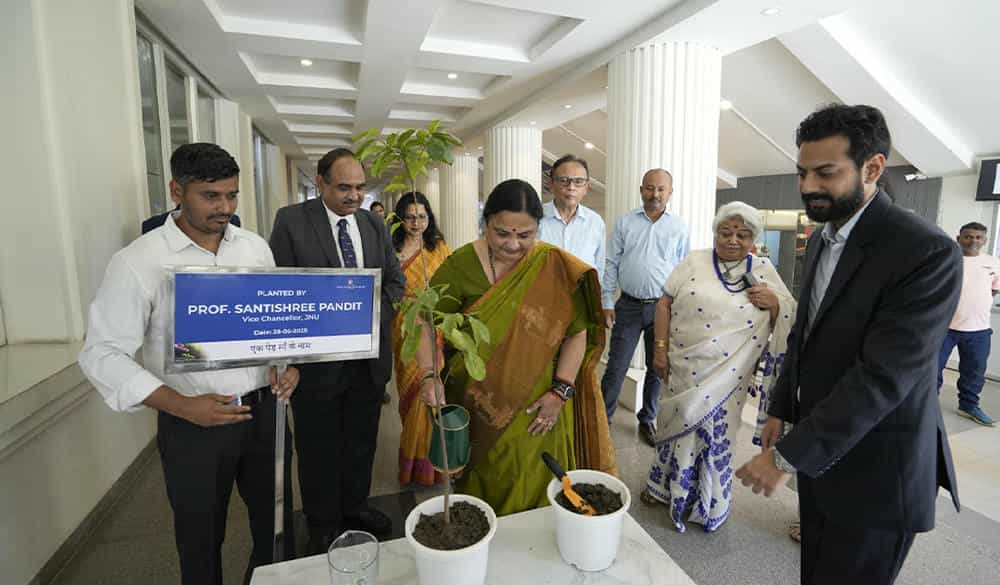AI is making slaves—mind must rule machines: JNU VC Prof. Santishree Pandit warns students at RGU

In a powerful address to students and faculty at Assam Royal Global University (RGU) on Wednesday, Jawaharlal Nehru University (JNU) Vice-Chancellor Prof. Santishree Dhulipudi Pandit issued a stark warning about overdependence on artificial intelligence, declaring that “AI is making slaves” and urging students to preserve their ability to think, read, and write independently.
“Machines are learning, but humans are serving. Don’t lose your talent to read, to write, and to think independently. Intelligence has become artificial, but stupidity remains original,” she said, calling on students to use technology as a tool—not a master. “Your mind is far superior to any technology.”
While emphasizing she was not anti-technology, Prof. Pandit stressed that AI tools like ChatGPT should support, not replace, human creativity and critical thinking.
The JNU Vice Chancellor’s visit to RGU also included a sapling plantation and tours of the university’s Museum and Central Sophisticated Instrumentation facility. She praised RGU’s rapid growth and comprehensive academic framework, stating:
“Though RGU is much younger than JNU, which is in its 57th year, it has an impressive trajectory—from KG to PG and PhD. RGU is clearly one of the leading private universities in Eastern India. Its contribution is significant, especially in the context of the Government of India’s Act East Policy.”
On the topic of education, Prof. Pandit also voiced strong support for the National Education Policy (NEP) 2020, describing it as a “long-overdue reform” after nearly four decades of stagnation. She noted that JNU is adapting the NEP by allowing each school within the university to tailor its academic framework.
“Every 10 years we must revisit education policy. India aspires to be a global knowledge power, and for that, flexible and forward-looking reforms are essential.”
Turning to gender discourse, she called for a balanced perspective, “Men are not the enemies of women’s empowerment—they’ve often been reformers. I would argue that India is a feminist civilization. Draupadi is our first feminist. What we need is balance and harmony.”
Prof. Pandit also spoke passionately about diversity, calling it the foundation of unity in higher education, “I’m against uniformity—it dulls the mind. But unity, like the colours of a rainbow, is beautiful. Bring the local to the national, and connect it globally. Learn from your teachers—nothing can replace the classroom experience.”
Her remarks struck a chord with the audience, offering a blend of intellectual provocation, cultural pride, and a call to resist mental passivity in the face of rising AI automation.



Leave a Reply